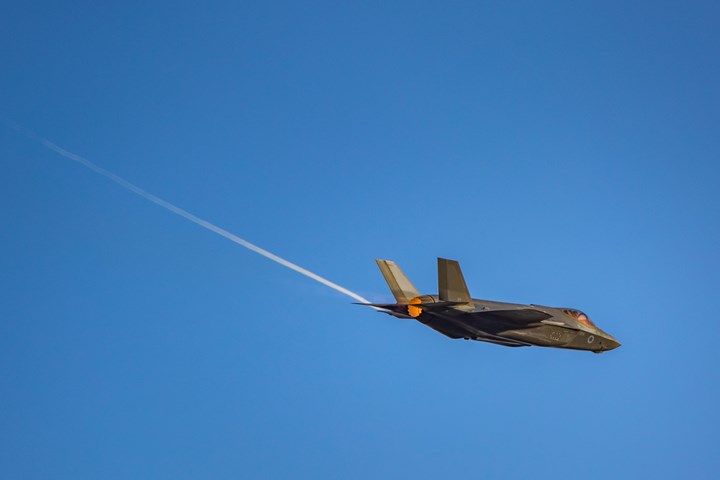Lockheed Martin terminates agreement to acquire Aerojet Rocketdyne amid regulatory roadblocks
The U.S. Federal Trade Commission blocked the aerospace, arms and defense corporation over antitrust concerns in January.
Share

F-35 Lightning aircraft. Photo Credit: Getty Images
Lockheed Martin Corp. (Bethesda, Md., U.S.) announced on Feb. 13 that it has terminated its agreement to acquire rocket engine maker Aerojet Rocketdyne Holdings Inc. (El Segundo, Calif., U.S.) for $4.4 billion. The decision to terminate the agreement follows the U.S. Federal Trade Commission’s (FTC) lawsuit filed late January 2022 seeking a preliminary injunction to block the acquisition.
“Our planned acquisition of Aerojet Rocketdyne would have benefited the entire industry through greater efficiency, speed and significant cost reductions for the U.S. government,” says James Taiclet, Lockheed Martin chairman, president and CEO. “However, we determined that in light of the FTC’s actions, terminating the transaction is in the best interest of our stakeholders. We stand by our long heritage as a merchant supplier and trusted partner and will continue to support Aerojet Rocketdyne and other essential suppliers in the defense industrial base still overcoming the challenges of the pandemic.”
According to CNN, and Reuters the U.S. FTC voted unanimously to sue to block the deal over antitrust concerns. The merger, which was announced in late 2020, drew criticism, as it was believed it would give Lockheed a dominant position over solid fuel rocket motors, a vital piece of the U.S. missile industry. Missile maker Raytheon Technologies (Waltham, Mass., U.S.) was an outspoken opponent of the proposed acquisition.
Despite this, Taiclet notes that moving forward, Lockheed will maintain its focus on the most effective use of capital with the highest return on investment, including the company’s ongoing commitment to return value to shareholders. We remain confident in our company’s strong foundation and growth potential as several exciting projects enter production,” he concludes.
Moreover, on the same day, Aerojet Rocketdyne issued a statement indicating it is “poised to deliver substantial value to our shareholders driven by our continued leadership in key space exploration and defense growth markets, including by advancing hypersonics and strategic, tactical and missile defense systems.”
Related Content
-
US Air Force selects Integris Composites ballistic body armor
Cratus Wave armor is thin, lightweight and reduces heat stress, providing buoyant personal protection for the 582nd Helicopter Group.
-
Milliken & Co. partners with MMI Textiles to offer Tegris thermoplastic
The commercial market partnership enables easier access to the Tegris thermoplastic composite fabric for defense customers in the quantities that they require.
-
Orbital Composites wins AFWERX award for Starfighter drone fleet
Under the TACFI contract, Orbital is implementing the AMCM process to build 3D printed composite multi-mission UAS aircraft, surpassing $10 million in government awards.
















